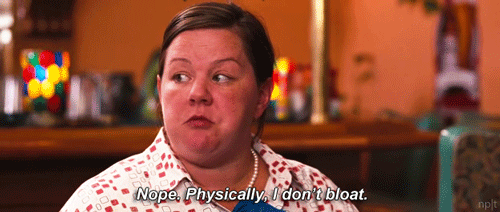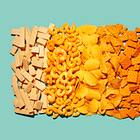Moms and the Food Sensitivity Myth
On maternal vulnerability, diet culture, and the manipulative marketing of mail order tests. Plus: 3 other Kid Wellness Culture trends to skip.
Welcome to a very special Burnt Toast! Today we’re talking about food sensitivity tests. (To be clear: We’re not talking today about peanut allergies, Celiac disease, or other true food allergies and intolerances, all of which are real medical conditions in need of support, accommodation and treatment.) “Food sensitivity” is not a new concept for anyone on the diet/wellness culture beat (though I bet most people can only vaguely define it), but in the past few months, I’ve noticed a much bigger push to diagnose food sensitivities in kids, and then put them on the kind of elimination diet that turns packing school lunch or navigating birthday party food into an Olympic sport.
My good friend, neighbor and acclaimed science journalist has been tracking the story as well, so we decided to team up to tackle this issue. She’s writing today about why food sensitivity tests aren’t backed by science and can pose serious health risks for kids. (Read it here!) And I’m writing about why desperate moms are ordering them anyway.
PS. Hi Melinda’s readers! You can read more about Burnt Toast here. As a thank you for popping over to read this piece, here’s a discount for you. This week only!
Selling Moms on Food Sensitivity Tests
Cayley, a TikTok mom with over 30,000 followers, cut dairy and eggs out of her toddler’s diet back in March. She made the changes after sending away for a mail order testing kit, which informed her that Bella, now age 2, is sensitive to 13 kinds of cheese, plus butter, milk, yogurt, eggs, ice cream and chocolate. In June, she posted an update: “Things I’ve noticed since cutting dairy out for my 2 year old,” she wrote, before detailing a list of improvements like “no more eczema flare-ups,” “no illness in 5 months,” and —wait for it— “less bloated.”
Cayley doesn’t show the brand of test she ordered for Bella, but she is definitely not the only momfluencer talking about food sensitivity testing and elimination diets for kids right now. All across Instagram, TikTok and YouTube, they’re branded as great for the whole family and hawked as Mother’s Day presents. Julia Katherine, who posts as @thedetoxmama with over 447,000 TikTok followers, claims that food sensitivities “and inflammation” were the cause of her son’s under eye circles, eczema, “behavioral issues” and tongue sores, and makes sure to mention that everything she used to manage his symptoms is available in her Amazon store.1 “2 years of screaming, rashes, GI issues and so much more, and now I have answers,” posts @mindyourmoms, before offering a discount code for the brand she used. That would be YorkTest, which charges $179 for their Junior Food Sensitivity Test, which promises to analyze “your child’s IgG reactions to over 100 foods, providing color-coded results and nutritional post-test support”—including “a 30 minute phone call with a qualified diet & nutritional expert.” Is that expert an MD, RD, or qualified in any specific way? Never mind! 82 percent of customers “said that doing the test had a positive impact on their health and wellbeing.” And conspiracy theories abound online, linking food sensitivities to “brain inflammation,” ADHD, autism and so much more.
In fact, food sensitivity tests are an unreliable science at best, and dangerous at worse, as Melinda reports today in her companion piece. And yet, the most common response to such testing (whether for yourself or your child) is to start an elimination diet, just as Cayley did, which can both worsen the very symptoms you were hoping to mitigate and be a gateway to disordered eating that can take years to undo.
But what makes these tests especially insidious is how they are marketed disproportionately to women and moms. We’re already used to being dismissed and ignored by mainstream medicine. We’ve been socially conditioned to understand our bodies as problems to solve, and food as a project we’re forever failing at. We’re exhausted and afraid — that our migraines will never stop, that the baby, now a toddler, will never stop crying, that we’ll never lose the baby weight or sleep again. We feel out of control and we’ve been told that food is the one thing we should always control. And companies like YorkTest, Check My Body, and Everlywell, both part of a $3 billion market, know this and are ready to profit.
Of course, food sensitivity testing isn’t, in and of itself, a diet. And as I sifted through the marketing materials for these companies, I caught less overt anti-fatness and weight loss talk than I’m used to encountering in the wellness space. But the most popular test brand, Everlywell (made famous on Shark Tank), also sells a metabolism test and has recently gotten in the Ozempic game. And you can expect to see “weight gain,” or at least “bloating” on every list of symptoms that might inspire someone to pursue food sensitivity testing. We should talk more about the term “bloating” as an anti-fat dog whistle; recall Kristen Wigg’s confused face in Bridesmaids when Melissa McCarthy’s character tells her: “I don’t bloat. It’s a gift.” The confusion, and the joke, are rooted in the fact that McCarthy is already fat. Straight-sized folks are taught to fear bloating because it will make them look fat.
So anti-fatness can be one reason to pursue food sensitivity testing. But even if it’s not the origin story, it will inevitably crop up during the requisite elimination diet process. Yes, it’s possible to cut food groups for health reasons without getting entangled in the pursuit of thinness. But boy, is it difficult, especially when doctors and naturopaths who prescribe elimination diets may celebrate any subsequent weight loss as a sign of success: You’re “less bloated,” like Cayley’s toddler, so maybe you were never meant to eat cheese.
Elimination diets are always officially defined as short-term experiments: You cut out foods for say, 30 or 60 days, then reintroduce them and watch for reactions. But you probably will start to note those reactions, because, as
has argued, the potential for placebo and nocebo effects is high here. “We know that the placebo effect actually has physiological effects on our body; it can activate the endogenous opioid system, which is how our body creates pain relief for itself,” Christy explained on the pod earlier this year. “So if someone is struggling with chronic digestive pain, and they’re bringing back in a food that they believe is going to be harmful to them, it really can activate this sense of increased pain.” And then, it’s easy to assume that you must now embrace a life without. Especially if that sacrifice might lead to thinness, whispers the voice in the back of your head.But that doesn’t mean that cutting out these foods will permanently resolve your symptoms—because they most likely aren’t the true culprits. And while it’s true that restricting calories through an elimination diet can result in some small and temporary amount of weight loss for most people, we can’t prove a causal link between that weight loss and any reduction of symptoms also experienced. Plus, long-term elimination diets may bring a host of other physical health complications — nutrient deficiencies from the absent food groups, and even the kind of gastrointestinal distress you were hoping to avoid in the first place. “Not eating enough and having a fearful relationship with food absolutely has effects on the digestive system,” says Christy.
Elimination diets also increase your risk for the mental health consequences of disordered eating. One reason for this is that when the elimination diet fails to resolve your symptoms, many health professionals will follow it up by telling you to cut out yet more foods —often without checking to see how restrictive your diet already is. That’s what happened to Aubree, now 37, in San Diego, who had her first food sensitivity testing experience at age 16 when she developed acid reflux, which runs in her family. “This was before all the ads and all the new blood tests,” she notes. A holistic doctor determined that Aubree couldn’t eat gluten, peanuts, pistachios and all fruit, among other things. “This led to a vitamin deficiency that had me feeling awful,” she recalls. Aubree brought back fruit, but continued down a rabbit hole of ever-intensifying restriction for most of the next two decades. “Whenever I’d get seen for any digestive issue, medical professionals would suggest yet more restrictions,” she says. “Nobody ever questioned how much I was already restricting.”
When Aubree’s second baby developed intense acid reflux in 2019, Aubree tried living on a four ingredient diet to maintain breastfeeding. When that failed, she took a test by MRT Oxford Biomedical in the hopes it would pinpoint a different culprit. Her test results showed sensitivities to apricot, caffeine, carob, cheddar, cherry, corn, cumin, egg white, eggplant, grapes, hops, kale, mango, MSG, pecan, pork, salicylic acid, sesame, tapioca, tea, and tilapia, all of which Aubree dutifully cut. But her baby’s symptoms worsened, until he diagnosed as “failure to thrive,” and hospitalized. Gradually switching him to formula helped him get back on the growth charts; it took medication and just waiting for him to outgrow it for the reflux to subside. But Aubree’s recovery took even longer: “I was left terrified to eat.”
This makes sense because the core premise of every food sensitivity test is that some foods might be very, very dangerous. They might look benign. They might be fine for other people. But eating some nightshade vegetables or the wrong legume on a Tuesday, could be the reason you have a headache on Thursday, at least the way leading test brand Everlywell explains it:
Unlike food allergies, food sensitivities don’t always cause symptoms to appear as soon as you eat the problem food. Instead, you might have symptoms hours or days after eating that food. This is what can make it hard to connect specific foods to the symptoms you’re experiencing.
Food sensitivities, in other words, are lurking all the time. They can be in almost anything — most tests boast their ability to determine your sensitivity to at least 100 individual foods; anything from gluten and dairy to more obscure options like lobster and green olives. You can never precisely know whether your symptoms were caused by something you ate—but you can never not know it either. You just know it has to be the food because food sensitivity testing rests on the bedrock diet culture premise that everything that goes wrong with our bodies can be solved by changing how we eat.

This is a deeply seductive explanation for any kind of health issue that mainstream medicine is prone to dismissing—meaning just about anything that happens with women’s bodies, and an awful lot of the non-life-threatening ways our kids can struggle, too. It’s often a fight to admit these symptoms are even legitimate problems in the first place — doesn’t everyone get headaches? Doesn’t every baby cry a lot and every preschooler throw tantrums? Is it all in our heads? When the pediatrician tells you, “Don’t worry Mom, lots of kids get stomachaches,” or your gynecologist’s only move is to prescribe yet another brand of birth control pills to control your unexplained pelvic pain, it can feel impossible to know if what you’re dealing with is actually abnormal—or just the cold, hard reality of having a body and a child in a world that makes all of that feel impossible. And the sweet relief of a concrete, tangible explanation like “gluten” can make the hassle of actually living without it fade into the background. Somebody listened to you. Somebody says they have the answer.
Except, of course, they don’t. Cutting out foods might feel like an easy fix, but the process of diagnosing food sensitivities involves so much restriction, so much journaling, so much trial and error, so much subjective rating of amorphous symptoms like fatigue, and so much squinting to see if you are maybe, in fact, a smidge less bloated today or just wearing different pants. Food sensitivity tests promise certainty in a world of chaos, and then carefully plaster their websites with disclaimers and caveats: “Not a diagnostic tool,” and “not intended to be a substitute for consulting with a health professional.” This, again, is classic diet culture: Promise to fix everything, and then when you fix nothing, find a way to make it all the customer’s fault.
It’s Not NOT A Diet: 3 Other Kid/Wellness Culture Trends to Avoid
The thing about reporting on food sensitivity tests on social media is that so many influencers pushing these tests are also pushing so many other wellness culture myths, misconceptions, and blatant misinformation. My eyes! Here are three other trending concepts that jumped out at me as I was researching this piece, all of which you can go ahead and just absolutely not do.
(And yes, each of these has more nuance than I’ve got space to explore here. Drop your questions in the comments and if there’s a critical mass around any, I’ll put them on the list for future deep dive reporting.)
1. Detox Heavy Metals
I’m not going to say that nobody ever has been poisoned by heavy metals. I am going to say that if your toddler is not working in a smelting plant, heavy metal poisoning is probably not the reason they are having tantrums or eczema. If you have legitimate concerns about your air or water quality, talk to your pediatrician. Don’t buy detox programs or supplements from influencers who have to put “NOT MEDICAL ADVICE” in their TikTok bios so they don’t get arrested.
2. Introduce 100 Whole Foods, in a Very Specific Order (Kale First)
We’re going to talk a bit more about this on the podcast Thursday. But starting solids with your baby should be fun and messy, the end. You don’t need to obsessively march your baby through their first exposure to salmon, tofu and rambutan before you ever let them near a strawberry, or a Cheerio.
has a great deeper dive on Solid Starts, the Instagram account most well-known for pushing a complicated food introduction system on parents, that’s well worth a read and I wrote more about the broader diet culture of Kid Food Instagram here.3. Decide Everyone is “Sensitive” to Wheat (or Any Food)
“Is it a food sensitivity, or is it a food that everyone is sensitive to, like wheat?” asks @SuperEarthMama on TikTok, before going on to explain that wheat is so wildly different now than it was a generation ago that we are all actually unable to digest it without consequences (to her, the biggest one is the ob*sity epidemic). I’ve seen similar arguments made for years about dairy and now, ultra processed foods. You can revisit my conversation with Laura about UPFs here and here for the deeper dive on how this kind of fear-mongering distorts the actual science, but TL/DR: Farming practices and food production has changed but food is still food. “Franken Wheat” is not a thing.
What would you add to this list?
There is also a lot of wild nonsense on her page about heavy metal detoxing—a story for another day, but also a scam.








Whenever these conversations come up, I tend to say nothing because unlike influencers I don’t think my anecdotal experience is something to broadcast to the world, and I hold highly nuanced views on the subject, which tend not to work for either the influencer or the anti-wellness industry groups. I’m definitely on board with how the wellness industry profits off anti-fatness and diet culture. I teach about this myself. I also think this is an area where it’s more challenging to explain where, how and why they are wrong.
My experience is being diagnosed with Irritable Bowel Syndrome at age 7. I had chronic, awful stomach aches as child and I had extensive tests (upper and lower GI, ultrasounds and more). In 1989, the best the doctor could do was tell my mother that I would need to learn to live with it, which I did for many years. Fast forward to 1999, I got my gallbladder removed, which tends to make some people need to use the bathroom more quickly after eating. My turn around time was already 15 minutes so I didn’t notice much difference. In 2007, I couldn’t eat anything without severe pain and spending hours in the bathroom. I spent all day in bed for a month. I couldn’t go to work or do much of anything. It was awful, debilitating and scary.
What makes what helped hard to explain is how language has been co-opted by the wellness industry. I didn’t do an elimination diet, and I wouldn’t recommend one to anyone. What I did do was find a book for people with IBS with a list of foods for when you can’t eat anything. I ate only the foods on that list for a month because before that anything I ate was making me miserable. This wasn’t an elimination diet but a reintroduction of food “diet.” It definitely wasn’t a diet because I didn’t care how much I ate or about anything except not feeling awful after eating and lots of the foods on the list are demonized by the diet industry.
Once I got back to feeling better, then it was about reintroducing other foods one at a time to see what I could tolerate. This is where the language of food sensitivity particularly was useful for me. There are only 3 foods that I found really elicited a violent reaction. Everything else was either fine or something that I needed to be thoughtfully about what else I ate with it and how much. Not portion control but just so that I had enough other food that wasn’t an issue to “cover it.” Because I don’t want to mention specific foods, let’s pretend people often eat wood chips and rocks. Sometimes separately, sometimes together. For me, wood chips feel great. But rocks hurt if I eat them by themselves. If I have some wood chips with some rocks mixed in, I’m usually fine. I can have a big bowl and everything is great. This is how I used food sensitivity to explain to people who were cooking for me or picking a restaurant, what I eat. It’s still complex because if I feel really stressed, then I might feel like any rocks aren’t a good idea for lunch but be fine with having some later for dinner. These should be relatable concepts but when it’s tied to a medical condition I’ve found people are very reluctant to believe one’s understanding of their own bodies (especially fat people’s) unless they’re trying to capitalize off of that concern. So a lot of people just think I’m weird and picky and making it up whereas others want to sell me a magic fix it.
As someone dedicated to fat liberation, I’m not sticking up for the wellness industry or any of their destructive practices like elimination diets that are embraced by the medical establishment too. I just want people to know that when we talk about what it means to actually have a food sensitivity or medical issue sometimes the only people who are willing to listen are other people with these experiences. And some of those people are selling things that are part of this industry. Who or what do you turn to when you can’t eat anything without pain and your doctor says to learn to live with it? I feel lucky that I found a book that was helpful to me and that I could ignore the wellness industry stuff in that book. I rarely recommend anything to people in my situation and if I do (3 times in my life), it’s been to people really struggling who I could have a candid conversation with about these pitfalls and more.
I’ve written this long comment because I think people in the messy middle, which may be more than a few, are left out. General statements validating that we exist are important. But if we only focus on the scams and the successful medical solutions, we’ll miss the people who have been failed by both.
As a fat liberationist, I want to be able to see this as totally black and white. The wellness industry IS preying on people’s suffering (including too many medical establishment folks). It’s just not the whole story, which is - when they are the only ones offering solutions, and we must cobble together our own methods of survival. Opting out entirely may not be an option and that is another way that anti-fatness fails us.
So, you are saying that I *should* worry about heavy metal toxicity because I let my toddler get a job at that smelting factory (all the chimneysweep jobs were taken, alas)? Wow, really feeling judged for my parenting choices here today.
Honestly, you've covered this already, but I still feel like the worst thing in this whole space is that people still believe the sugar=hyperactive, behavior issues myth and make fun food experiences so fraught and weird.